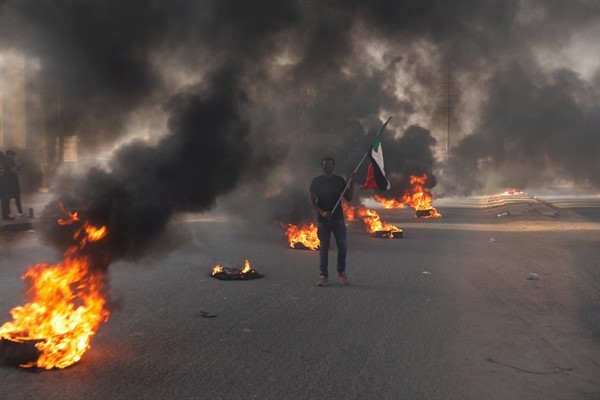More than a year after the fall of dictator Omar al-Bashir’s regime, the coronavirus pandemic is hitting Sudan’s still-fragile democratic transition. Differences between the civilian and military leaders in the transitional, power-sharing government are growing, as the military consolidates its authority due to restrictive security measures that went into effect in April, including a ban on public gatherings and protests around the country, with particularly harsh restrictions in effect in the capital, Khartoum. COVID-19 has also brought chaos to Sudan’s troubled economy, damaging the transitional government’s credibility and popularity.
The road had not been smooth since last August, when Sudan’s powerful military agreed to an interim constitution, officially known as the Constitutional Declaration, with the Forces for Freedom and Change, an umbrella group of activists that had led the protest movement to end Bashir’s 30-year rule. The Constitutional Declaration inaugurated a three-year power-sharing period until national elections could be held, but it did not take long for relations between the civilian and military sides of the transitional government, known as the Sovereign Council, to come under strain.
In January, Sudan’s ambassador to the United Nations sent a letter on behalf of Prime Minister Abdallah Hamdok to U.N. Secretary-General Antonio Guterres outlining the Sudanese government’s position on a new U.N. political mission to Sudan with “a strong peacebuilding component.” A joint peacekeeping mission of the United Nations and the African Union, focused on Sudan’s conflict-prone Darfur region, is due to be drawn down later this year. Among the many items that should be included in the new political mission’s mandate, Hamdok’s letter specified U.N. support for the implementation of the Constitutional Declaration and security sector reform. But Hamdok hadn’t consulted Sudan’s military’s leadership before sending that letter, so the generals pressured him to send a new one to the U.N. in March, with a narrower scope for the proposed mission’s mandate. Specifically, the new letter omitted the sections about support for implementing the Constitutional Declaration and security sector reform.

